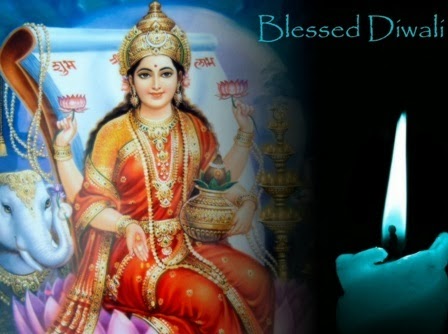I bring positive greetings to you on this festive and most holy observance of Diwali.
I have offered to make a small verbal contribution to this observance today on this Hindu holy occasion of Diwali and as such I would like to invite a few minutes of your attention as I proceed with this delivery, purposefully titled Divinity in Hinduism: The Supreme Female Form; A Message to Remember.
In the early months of 2013, following the gruesome and fatal sexual assault on a female Medical Student in a Bus in New Delhi India, and a few other such atrocities, unrelated but certainly newsworthy and also having occurred in India in the months that followed, a rapid stream of both local and international media attention have been focused on the incidence of these, whilst not widespread, but most malicious, vexatious, and indeed ruinous attacks criminally perpetrated by a handful few in the Indian landscape. At the height however of the frenzied and inevitably best-seller and sensationalist tabloid reporting, impressions and emphasis were somehow given of exclusivity of the occurrence of these attacks on ‘Hindu’ Indian women and within ‘Hindu’ communities.
Interestingly western media have not sought to shed light on the total unacceptability and strict deprecation of this or for that matter any type of criminal behavior within Hindu Scripture, Dharma, Philosophy and Hinduism itself, and instead the true role of supreme female divinity in Hinduism, leaving the world’s oldest religious consciousness and foundational philosophy on sustainable ways of life open to moral ablation from pernicious rumors on the treatment of females in Hinduism to run wild, or leaving the impression of female inferiority or subordination in Hinduism, or somehow that this indefensible behavior is acceptable in Hinduism or that Hinduism is favorable to the ill-treatment of our women.
Well, irresponsibility and not giving the full story in large gaping corners of our global and allied mass media in their reporting, have bequeathed to the learned, the faithful, the fearless and the fair-minded like those of you amongst us and myself, not the burden but the proud duty, though sadly often neglected, to explain and educate. To seek to clarify the true position of revered female divinity in Hinduism, I have this to say.
In Hinduism, females command the highest forms of divinity in all of our Hindu Scriptures, texts and teachings, and to recognize, permit, practice, preach or in any way condone anything else is un-Hindu and un-holy.
Many of you may know or be aware of the striking and formidable Goddess, Kali Maa. In the divine Hindu female form, Kali Maa embodies the sum-total of all power and strength that is destructive of all evil, wrongdoing and sin. The strongest Goddess or Devi in Hinduism, the most righteous and consequently the most feared by the carnal sins capable in Human mortality, is the all powerful female form of Kali Maa. So, sufficiently self-explanatory on the topic of the female place and the role of femininity in Hinduism is by reference to the most powerful God in Hinduism that is destructive of all evil, the bringer of moral retribution and the most revered being in the female form of Kali Maa.
Further, Kali Maa is also known and presents in appearance as the dark skinned goddess. In recent times there have also been much talk and mischievous topical spread on social media networks about the dark skinned female Dalit or Untouchable female in Hinduism, specifically that Hinduism seems to allow the subjection of females to the lowest ranks of an untouchable and to social opprobrium and discrimination, if they are of a dark or black skin color.
Again, the disturbing height of falsehood and reckless misinformation here is clear and evident, and furthest from the truth, as the most powerful female god, the greatest source of virtue, strength and divinity that Hindu’s worship, is the dark-skinned female Goddess in the form of Shakti Paramatma, Jagadambika Maa, Kali Maa. Perhaps for a better understanding of why there may be ill-treatment of dark skinned females in India, and I am not saying that there isn’t, would be to look furthest away from the immaculate Hindu religion and infallible Hindu Spirituality and instead closely in the direction of the effects of Colonialism, Western Imperialism in the East, wherein such discrimination may firmly have its roots.
Nowhere in the Hindu scriptures is any form of female discrimination mentioned or treated as acceptable and instead higher levels of worship and reverence of the female form is commonplace and emphasized. Female discrimination and degradation of any type in Hindu circles and society is therefore man-made, nothing more, nothing less, and has absolutely no place in nor association with Hindu spirituality, Hindu scriptures and Dharma.
The even higher observance and recognition of female divinity in Hinduism is evident in the very Hindu chants, mantras and greetings practiced by Hindu’s, where worship to the divine female form precedes that of the male, such as in the words Sita Raam, Jai Shree Radha Krishnaye Namah, the female forms of divinity of Sita and Radha coming before the male forms of divinity of Raam and Krishna. To explain also, the greeting Sita Raam, often said by Hindu’s upon greeting anyone of any repute, any social standing, or any physical appearance, means ‘I greet you in the name of the Spreme and I bow to the divinity within you’.
Closer to the significance of the blissful female form of Laxmi Ma, the goddess specially worshiped on this occasion of Diwali, in Hindu homes both throughout the year and on Divali day, the practice of opening the front doors of homes at 6 PM and placing lit earthen deyas at the doorway entrance is observed, with the belief that this ceremoniously welcomes Mother Laxmi, the giver of Health, Wealth, Prosperity and Harmony into the family home.
In the Hindu home mothers, daughters, sisters and cumulatively all females are regarded as divinity in the form of Laxmi Maa and are treated with the special respect, worship and protection that this significance holds. Hence, in the true Hindu home, transferred into societies to which Hindu’s belong, female disrespect, hurt or abuse in any form goes against the very moral and spiritual fibre of Hindu beliefs and Hinduism.
Another common misconception about Hindu families being hostile towards the birth of female babies versus being favorable to the birth of male babies, and consequently ill-treating girls in the Hindu home appears then entirely baseless and without merit. In Hinduism, the birth of a female child is seen as good luck to a household, bringing fortune, prosperity, fertility and harmony to the family. It is certainly that any favorable bias towards boy children over girls, often-seen and more existent in poorer Hindu homes, may have been as a result of practical considerations and in no way Hindu religious or spiritual ones, with the perception, backward of course, that more males in the home meant more capable labor, more household income, and greater prospects of family poverty alleviation.
Therefore, having dealt in some detail with the female in Hinduism, and in so doing having evaluated and illustrated the considerable role and place of female divinity in Hinduism, I wish to close with this message. As Hindu’s, let us remember our duty to honor and respect, and pledge to protect the women of our diverse society, as evinced by the high standards of the strong Hindu model, and still further let us share widely this knowledge of the good Hindu principles and practices towards the female embodiment, with a sense of virtue and interest in doing so, to help inform the misguided, and in defense of our Dharma..
The Hindu scriptures are clear on the proper treatment of females, and indeed everyone, regardless of race, religion or social standing, and in each of our own lives let our practices vibrantly emulate and honor these sacred teachings, making each of us proud flag-bearers of good Dharma in so doing.
For the non-Hindu brother and sister, let the essence of these principles and practices examined here today, and this message on this auspicious occasion of Divali, actively guide and enhance your attitudes and approaches toward our women, and also our children, and indeed everyone in our breathtakingly rich and plural society.
The omnipotent and omnipresent greatness of the worldly and eternal Mother Nature, known as Dharti / Prithvi Maa in Hinduism, and the caring and soft female touch; the loving sister; the faithful and trusting wife; the pain of the childbearing mother and the instinctual, nurturing, diligent, protective and watchful mother, our earthly Mother, Ma, we recognize you, we pay our respects to you, we worship you, and in this way we must recognize, we must respect and we must protect femininity itself, the female form and every woman.
I wish that the divine Mother Laxmi’s blessings for health, wealth and prosperity be radiant in our lives and that in each of our own struggles and tribulations faced in life, as in Diwali the essence of light over darkness signifies triumph of good over bad and achievement over disillusionment, that we too, no matter the challenges before us, shall overcome.
Thank you and god bless us all, and may Laxmi Maa continue to preside over our nation as we aspire, achieve and grow together.
By Omesh Persad






























